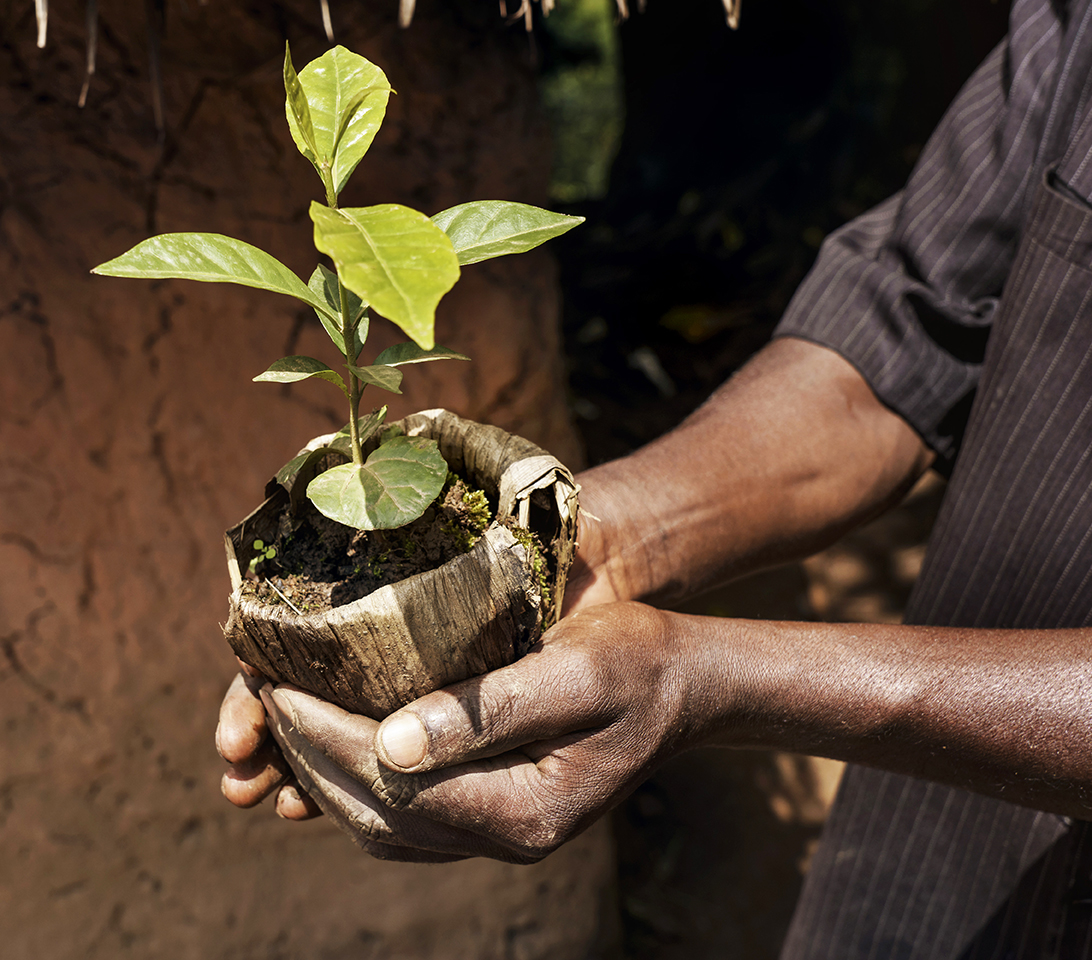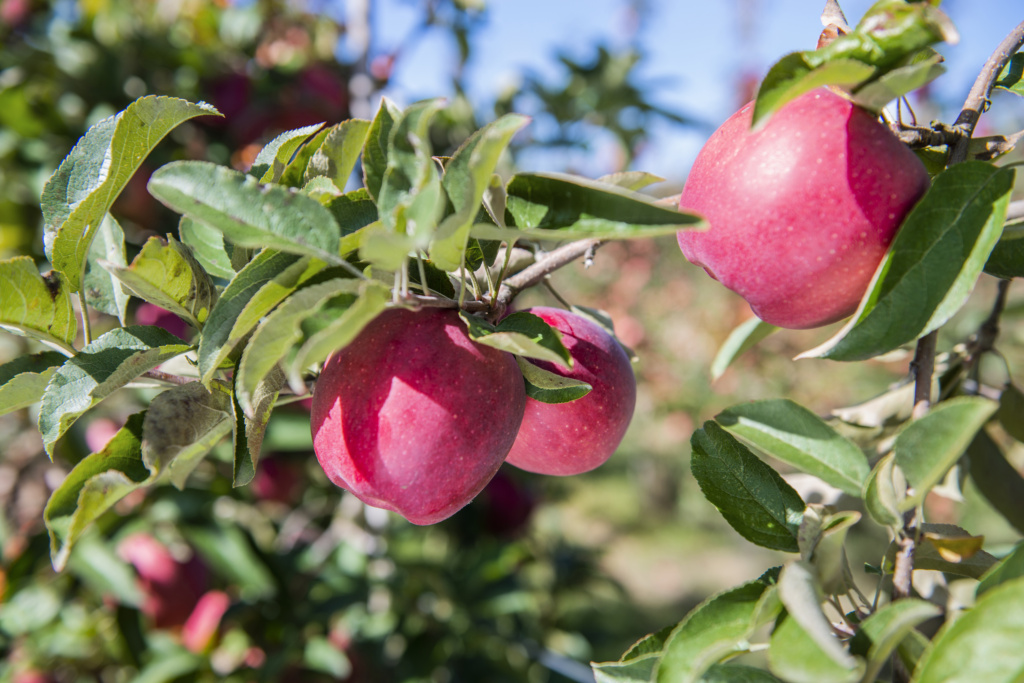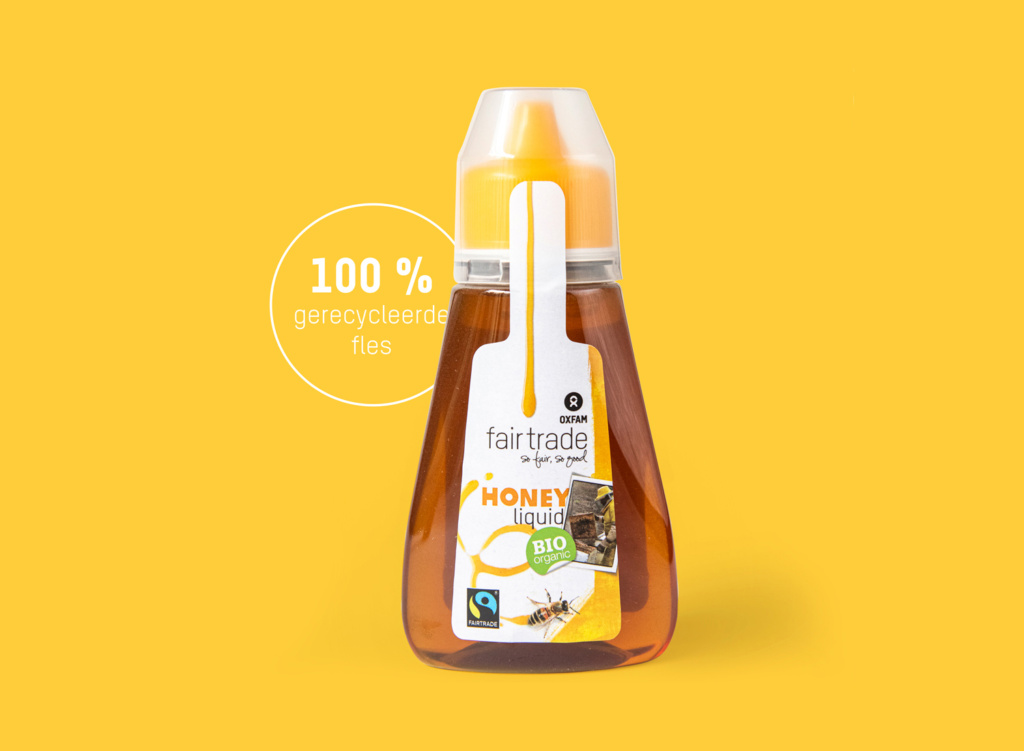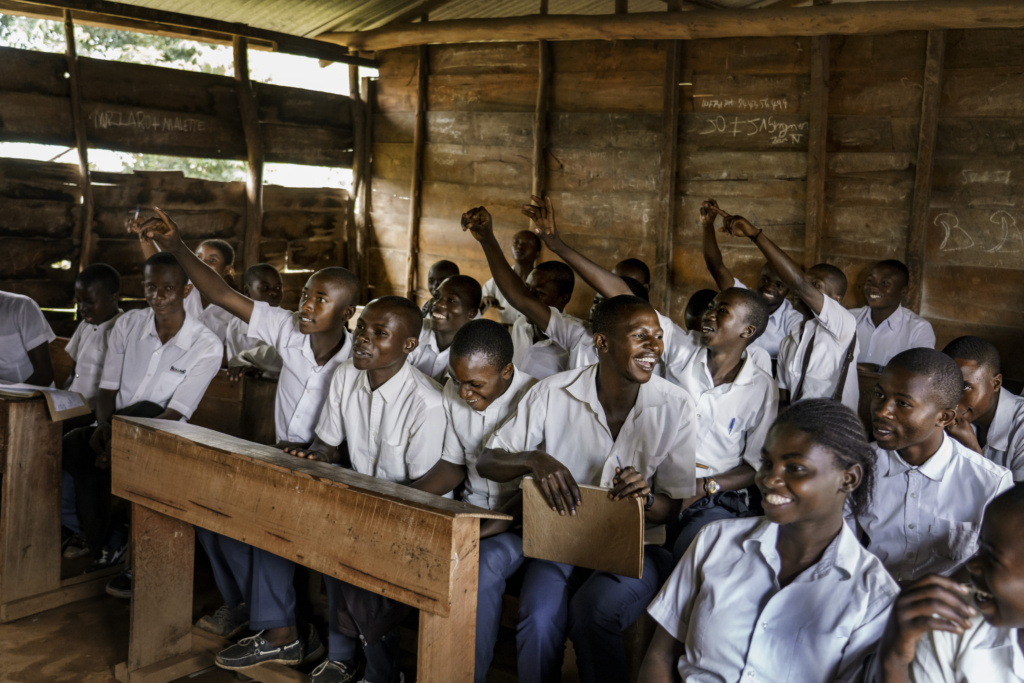
Sustainable consumption with Oxfam Fair Trade
For our own Oxfam Fair Trade brand products, fair trade remains our core value, while we are also investing more and more in other aspects of sustainability.
Oxfam is one of the Belgian pioneers of fair trade, which makes us a sustainable organisation through and through. And we want to keep advancing.
Towards a 100% organic assortment
By choosing Oxfam Fair Trade more often, you also choose organic. More than half of our products are already organic. Or with our coffee assortment it’s even two thirds! Plus we have plenty of organic chocolate, wine, soft drinks, honey, couscous, biscuits, etc. to choose from.

Our goal: to have our entire range certified organic by 2030
We’re currently making the transition to organic in our fruit juices. Our Brazilian partner-supplier Coopealnor has already switched to organic cultivation on part of their orange groves and will be expanding this over the coming years. Our Belgian apple juice is sourced from orchards that are switching to organic.
Fair trade criteria: also organic!
Even with our products that only have a fair trade label, a lot of attention is being paid to organic cultivation. After all, respecting the environment is one of the fundamental Principles of Fair Trade. So all Oxfam Fair Trade producers use water and energy sensibly and avoid chemicals. They work towards healthy soil and are tackling erosion.
Why should you choose fair trade and organic?
- While enjoying all these treats you’re contributing to a more sustainable society.
- You support producers that work organically. Because they get higher prices for organically certified raw materials. Organic crops are also more resilient to the consequences of climate change.
- You support a thorough approach: Oxfam also fights the structural causes behind environmental problems.
Oxfam Fair Trade also takes initiatives to look further than its fair nose. One example is that we’re currently gradually transitioning to sustainable packaging.
Packaging: sustainable in all its forms
Less packaging waste and in the long term a world free from polluting packaging. We still have a long way to go but we’re motivated to make the journey.
Packaging with zero impact on the environment currently does not exist yet. Every type of packaging has its own advantages and disadvantages. The packaging that keeps the product fresh the longest often turns out not to be the most healthy or user-friendly. Or the most sustainable packaging might not optimally guarantee the quality of the product.
Renewable raw materials, recyclable packaging
In order to make sound choices Oxfam Fair Trade closely monitors developments in packaging, the waste problem, recycling and technical innovations.
We switch to packaging that is largely made from recycled or plant-based materials. We also prefer packaging from easily recyclable or biodegradable, preferably renewable raw materials.

Over the last few years we ‘ve started to give our products a more sustainable jacket:
- Liquid honey in a squeeze bottle from 100% recycled PET or PCR (Post Consumer Resin).
- Fruit juice and cane sugar in an organic-based Tetra Pak: a carton free of PFAS made of more than 80% renewable, plant-based raw materials and with a life cycle that produces 28% less carbon dioxide than a ‘classic’ Tetra Pak.
- Coffee in 100% recyclable packs without aluminium and with the same quality guarantee.
- We systematically replace plastic wrappers with recycled ones or – if they adequately protect the product – a biodegradable variant.
Climate contributions
We want to move away from the tunnel vision that sees CO2 emissions as the main topic and ignores other topics such as biodiversity and water resources. With our climate contributions, we therefore not only support CO2 reduction, but also the strengthening of biodiversity, sustainable water use, water retention and more. We do this directly with the relevant trade partners and participate in projects that they propose. This ensures we have maximum impact. For example, we not only invest in slowing global warming (climate mitigation) but also in making our partners future-proof (climate adaptation). We are not less ambitious, but more critical.
B Corp certification is proof of sustainable impact
Oxfam advocates for a positive impact on communities, both in Belgium and in the countries where our fair trade producers operate. Socially responsible entrepreneurship is the core of our existence. That’s why we gained our B Corp certification in 2021. We aim to get a top score by 2025, including the accompanying ‘Best for the World’ status.
In plain English: we want to be at the head of the class when it comes to sustainable entrepreneurship. And in areas where we can’t yet fully achieve that we keep working on it in a transparent way.
B Corp ‘Best for the World’ within reach

The fact that B Corp certified Oxfam Fair Trade so easily is quite an exceptional feat. We owe this in part to the fact that our business is a cooperative that systematically invests approximately 4% of its turnover in Oxfam’s development projects. And we also generally score high in the areas that B Corp looks at: employee welfare, impact on communities in the North and South, the environment.
In order to receive the ‘Best for the World’ status across the board, we mainly have to formalise our existing sustainability strategy, measure our efforts and results and communicate them.
Fair trade, Oxfam style: more than just a label
For more than 50 years Oxfam has had its feet firmly planted in the fair trade field and is adamant about staying there until all trade is fair. And that requires more than just a label on our product packaging. We innovate in fair trade by investing in living incomes for the producers and demanding attention for human rights and the environment in all trade chains.
Living income for fair trade producers
With this partnership Oxfam and cooperative CPR Canaan take a step further than fair trade: we pay the farmers who deliver the cacao for Oxfam’s Bite to Fight chocolate an extra premium that closes the gap to a living income. This on top of the fair trade minimum price and the fixed fair trade premium.
Because a living income that covers the basic needs of the family and adds a small buffer, remains out of reach for many small-scale farmers. Even when they can sell under the fair trade conditions.
Oxfam is helping an increasing number of farmers on their way towards earning a living income.

Duty of care for human rights and environment
Oxfam wants to take a leading role in making companies aware of the duty of care they have regarding human rights and the environment in their production chains, the so-called ‘human rights and environmental due diligence’.
In collaboration with KU Leuven, Oxfam is examining how SMEs, like Oxfam Fair Trade, can implement a due diligence policy. To do this, we are analysing our own coffee production chain. The farmers’ income – and its viability – is an important topic here too.
We consider our own experiences to be an important step towards strengthening our plea for duty of care.
Sustainability is never black or white
Together with our partners-producers we continually assess which adjustments can be made to elevate the product range to a more sustainable level.
Our partners cultivate and produce in extremely varying conditions. Therefore we will work on more sustainable packaging first with one producer, while we work on more sustainable transport or healthier products with another producer.
For Oxfam fair trade always remains the number one criterion as well as the absolute minimum. For each product we investigate how we can make our entire chains more sustainable in other ways too.
This is done step by step, taking the possibilities of our partners into account. We continually try to balance what is best for our customers, our producers and our planet.